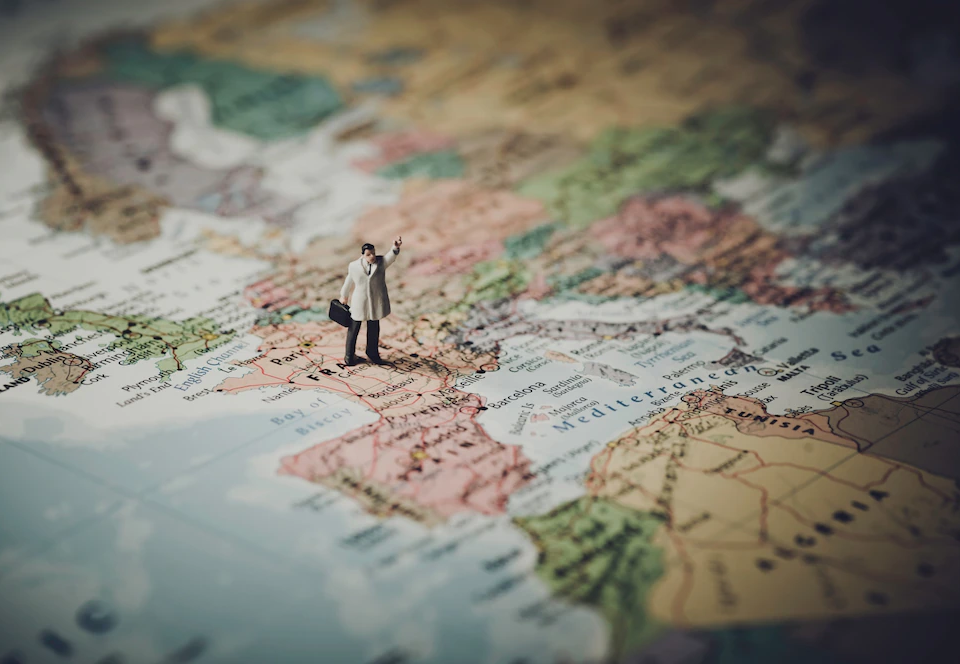
Digital Nomads: They want the creation of an internet country with digital citizens
December 9, 2021
How to get a “permanent” mail address as a digital nomad?
December 9, 2021As a digital nomad you like to live a bit on the edge, trying to make the most out of every situation, every destination and every chance thrown at you. This fast-paced way of life though, may be the cause of a not so healthy life. Here are some tips that will help you take care of yourself and avoid getting unhealthy in the process of getting free.
Include some kind of activity in your daily routine.

As the ancient Greeks used to say: “In order to have a healthy mind you need to have a healthy body”. Some kind of daily activity will help you skyrocket your productivity. Endorphins released during even a medium intensity workout (even a stroll through the park) will help you feel more energetic and confident throughout the day, thus making you more effective in dealing with tasks and living life to the fullest. The most common problem with sticking to a workout plan is that digital nomads lack time due to the amount of work necessary to be done on a daily basis. Nonetheless that should not consider you: even 30 minutes of exercise daily is scientifically proven to be enough for getting the much-wanted benefits. The best way to prioritize exercise is to make it the first thing you do each day. Also minimizing the equipment necessary for you to workout will remove any obstacles when finding a proper a gym or having a gym membership is impossible.
Take care of your diet.
Nutrition plays a key role to everyday performance. As a digital nomad most of the time you would feel like you are on vacation. Not having a standard schedule can take a serious hit on your eating habits and thus on your health. Most of the time junk food is the solution you would resort to when you are feeling hungry and you face an empty refrigerator at home. The solution to this problem is to be prepared ahead of time. Prepare your meals on one day of the week in large batches that will last you for a week or at night for the upcoming day. Having a meal plan adjusted to your daily requirements and sticking to it will skyrocket your productivity and thus make your more effective.
Drink your water.
The human body is made up of approximately 70-percent water. So, it makes sense that fluids are vital for the majority of our bodily functions—protecting our joints, maintaining organ function, transporting oxygen to cells, and sustaining body temperature. It also makes sense that the body can become dehydrated fairly quickly due to excess perspiration, hot weather, sun exposure, and lack of fluids throughout the day. Some of the negative effects dehydration can have on your body include:
- A drop in blood flow and pressure due to a lack of water and oxygen in the blood. “The defense mechanism of the body in the face of dehydration is to shut down blood supply to ‘non-vital’ organs,” says Robert Korn, MD. This causes a person to start feeling sluggish as their body begins to operate at a slower pace.
- Inefficient digestion, as water absorption is required for healthy bowel movements. Fluids in your body help things along, including helping the food you eat move smoothly along your intestines and out of the body via bowel movements. Water also keeps the intestinal walls smooth and malleable. That’s why when we’re dehydrated, the colon can become less flexible, contract slower, absorb less water, and result in stool (or body waste) that’s hard, dry, and painful to pass.
Dehydration is a very common culprit of chronic constipation. Inadequate water levels in the body cause the large intestine to suck up water from your food waste, robbing stool of moisture. Keep your digestive system functioning normally and your bowel movements easy to pass by drinking plenty of fluids daily as well as, by eating fiber and getting regular exercise.
But how much water is enough for the average person? The U.S. National Academies of Sciences, Engineering, and Medicine determined that an adequate daily fluid intake is: About 15.5 cups (3.7 liters) of fluids a day for men. About 11.5 cups (2.7 liters) of fluids a day for women. So go grab a glass of water right now.
Get enough sleep.
Sleep is absolutely essential to all animals, including humans. Insufficient sleep reduces our learning, memory and cognitive abilities, causes brain impairment and increases the risks of numerous diseases from cancer to diabetes, coronary heart diseases and even death. It also plays a key role in mental illnesses from psychiatric conditions to Alzheimer’s Disease. Sleep-deprivation harms the body—it damages every aspect of our physiology and is linked to a shorter lifespan and a host of diseases like cancer and heart diseases. That’s because it severely impacts your cardiovascular system, metabolism, reproductive system, immunity system, cancer growth and inflammation, and even genetic activity and makeup.
On the other hand, sleep boosts our mental, emotional and physical health and capabilities in ways that no number of drugs or medical interventions can provide. Sleep benefits the brain with 3 main cognitive benefits: (i) improved memory, (ii) improved motor task proficiency or “muscle memory”, and (iii) improved creativity. REM sleep connects your different memories, experiences and skills to create new ideas and insights.
Unfortunately, most people in modern societies are sleep-deprived, and we don’t even realize it because we’re so used to operating at sub-optimal levels. Aim for at least 7 hours of sleep daily preferably during the nighttime and harvest sleep’s benefits to the fullest.
“Treat yourself like someone you are responsible for helping.”
From “12 Rules for Life” by Jordan Peterson.
Written by Konstantinos Koufou






